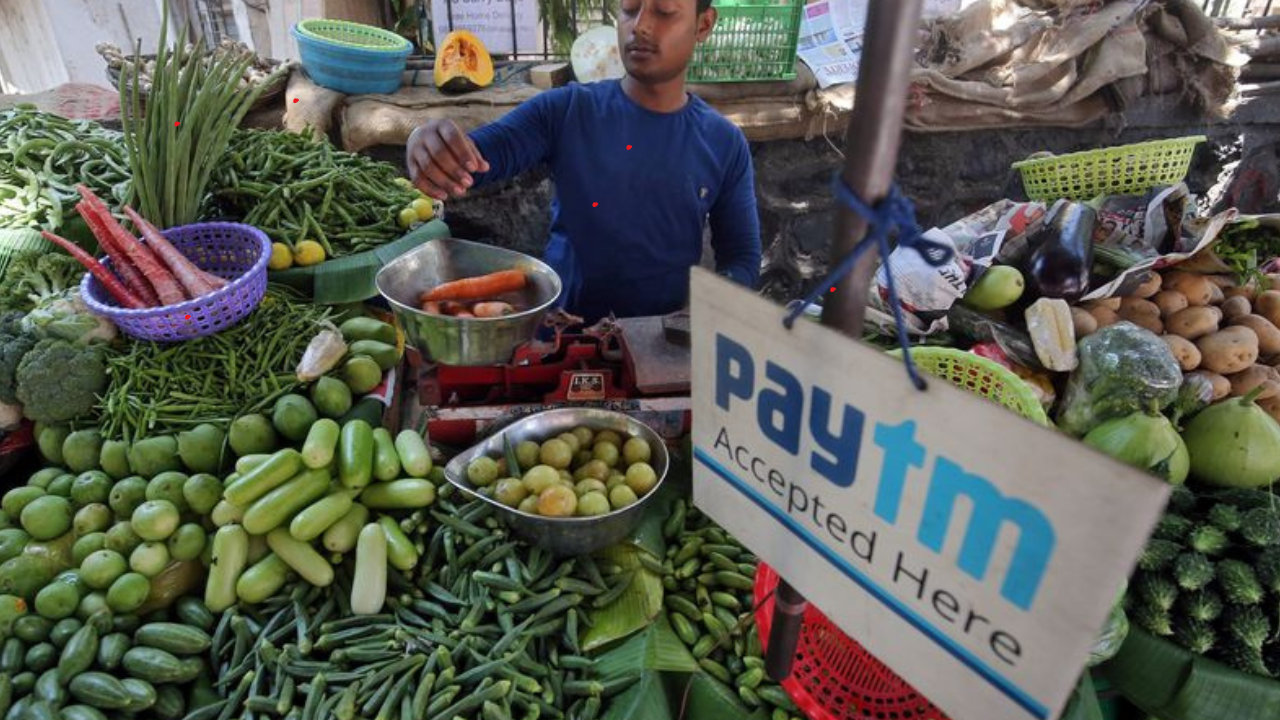What's next for Paytm after RBI's clampdown on Paytm Payments Bank? – Times of India

In a surprising development that has sent shockwaves through India’s fintech sector, the Reserve Bank of India (RBI) on Wednesday issued a stern directive to Paytm Payments Bank, the banking arm of Paytm, instructing it to halt the acceptance of fresh deposits and other core operations.
This move by the central bank has not only led to a drastic 20% plummet in Paytm’s share value but has also raised critical questions about the future of the company’s banking entity. Here are some FAQs that aim to shed light on the implications of the RBI’s order, delve into the operational facets of Paytm Payments Bank, and analyze the broader impact on Paytm’s business ecosystem.
1. What is Paytm Payments Bank, and what are its primary functions?
Paytm Payments Bank, operational since November 2017, is a specialized financial entity established under the payment banks category introduced in India in 2015. It is primarily engaged in accepting deposits up to a limit of 200,000 Indian rupees ($2,400) per individual. These deposits are either invested in government securities or deposited with other banks. The bank plays a crucial role in Paytm’s ecosystem by housing the funds deposited in Paytm’s widely used digital wallets, amounting to a staggering 330 million wallet accounts.
2. Who owns Paytm Payments Bank, and how is it related to Paytm?
Paytm Payments Bank is majorly owned by Paytm (49%), also known as One 97 Communications, with the remaining 51% stake held by the company’s CEO and founder, Vijay Shekhar Sharma. The bank is a pivotal banking partner for Paytm, crucially managing the funds deposited in Paytm’s digital wallets, thereby integrating closely with the parent company’s operations.
3. What prompted the RBI’s recent action against Paytm Payments Bank?
The RBI’s decision to restrict Paytm Payments Bank from taking deposits, offering credit services, or facilitating fund transfers was primarily driven by “persistent non-compliances and continued material supervisory concerns in the bank.” This decision follows a previous restriction imposed in March 2022, barring the bank from adding new customers, yet allowing business with existing ones. The recent directive requires the bank to wind down most of its operations by the end of February.
4. What’s next for Paytm?
In response to the RBI’s clampdown, Paytm has assured compliance with the directives and is shifting its focus away from Paytm Payments Bank towards collaborating with other banking partners. The company is accelerating its plans to integrate with various banks for its payments and financial services offerings, moving away from its reliance on Paytm Payments Bank.
5. What is the expected financial impact on Paytm due to the RBI’s action?
The RBI’s stringent measures are expected to have a substantial impact on Paytm, with an estimated annual operational profit hit of Rs 300-500 crore. This impact stems primarily from customers’ inability to add money to their wallets, FASTag accounts, and other services following the RBI’s directive. Despite this setback, Paytm anticipates continuing its trajectory towards improving profitability.
6. How does the RBI’s order impact the operational aspects of Paytm Payments Bank?
Following the RBI’s order, Paytm Payments Bank is mandated to settle all pipeline transactions and nodal accounts by March 15, 2024, with no further transactions permitted thereafter. The bank’s ability to meet outflows remains stable due to its deposits being held in government bonds and other banks, ensuring liquidity. However, the bank’s broader operational capabilities, including its popular mobile wallet business, have been significantly curtailed.
7. What are the broader implications of the RBI’s action on Paytm’s business and market standing?
The RBI’s decision has dealt a severe blow to Paytm’s market credibility and valuation, with the company losing $1.2 billion in market value and its shares plummeting by 20%. This regulatory action has also raised concerns among Paytm’s lending partners and could potentially hinder the company’s efforts to achieve net profitability. The move signifies a major setback for Paytm and its founder, Vijay Shekhar Sharma, challenging the company’s ability to retain customers and sell its payment and loan products effectively.
(With inputs from agencies)
This move by the central bank has not only led to a drastic 20% plummet in Paytm’s share value but has also raised critical questions about the future of the company’s banking entity. Here are some FAQs that aim to shed light on the implications of the RBI’s order, delve into the operational facets of Paytm Payments Bank, and analyze the broader impact on Paytm’s business ecosystem.
1. What is Paytm Payments Bank, and what are its primary functions?
Paytm Payments Bank, operational since November 2017, is a specialized financial entity established under the payment banks category introduced in India in 2015. It is primarily engaged in accepting deposits up to a limit of 200,000 Indian rupees ($2,400) per individual. These deposits are either invested in government securities or deposited with other banks. The bank plays a crucial role in Paytm’s ecosystem by housing the funds deposited in Paytm’s widely used digital wallets, amounting to a staggering 330 million wallet accounts.
2. Who owns Paytm Payments Bank, and how is it related to Paytm?
Paytm Payments Bank is majorly owned by Paytm (49%), also known as One 97 Communications, with the remaining 51% stake held by the company’s CEO and founder, Vijay Shekhar Sharma. The bank is a pivotal banking partner for Paytm, crucially managing the funds deposited in Paytm’s digital wallets, thereby integrating closely with the parent company’s operations.
3. What prompted the RBI’s recent action against Paytm Payments Bank?
The RBI’s decision to restrict Paytm Payments Bank from taking deposits, offering credit services, or facilitating fund transfers was primarily driven by “persistent non-compliances and continued material supervisory concerns in the bank.” This decision follows a previous restriction imposed in March 2022, barring the bank from adding new customers, yet allowing business with existing ones. The recent directive requires the bank to wind down most of its operations by the end of February.
4. What’s next for Paytm?
In response to the RBI’s clampdown, Paytm has assured compliance with the directives and is shifting its focus away from Paytm Payments Bank towards collaborating with other banking partners. The company is accelerating its plans to integrate with various banks for its payments and financial services offerings, moving away from its reliance on Paytm Payments Bank.
5. What is the expected financial impact on Paytm due to the RBI’s action?
The RBI’s stringent measures are expected to have a substantial impact on Paytm, with an estimated annual operational profit hit of Rs 300-500 crore. This impact stems primarily from customers’ inability to add money to their wallets, FASTag accounts, and other services following the RBI’s directive. Despite this setback, Paytm anticipates continuing its trajectory towards improving profitability.
6. How does the RBI’s order impact the operational aspects of Paytm Payments Bank?
Following the RBI’s order, Paytm Payments Bank is mandated to settle all pipeline transactions and nodal accounts by March 15, 2024, with no further transactions permitted thereafter. The bank’s ability to meet outflows remains stable due to its deposits being held in government bonds and other banks, ensuring liquidity. However, the bank’s broader operational capabilities, including its popular mobile wallet business, have been significantly curtailed.
7. What are the broader implications of the RBI’s action on Paytm’s business and market standing?
The RBI’s decision has dealt a severe blow to Paytm’s market credibility and valuation, with the company losing $1.2 billion in market value and its shares plummeting by 20%. This regulatory action has also raised concerns among Paytm’s lending partners and could potentially hinder the company’s efforts to achieve net profitability. The move signifies a major setback for Paytm and its founder, Vijay Shekhar Sharma, challenging the company’s ability to retain customers and sell its payment and loan products effectively.
(With inputs from agencies)







